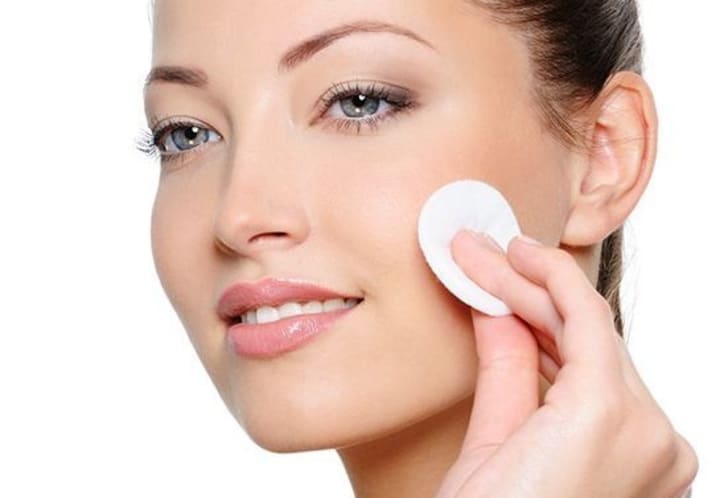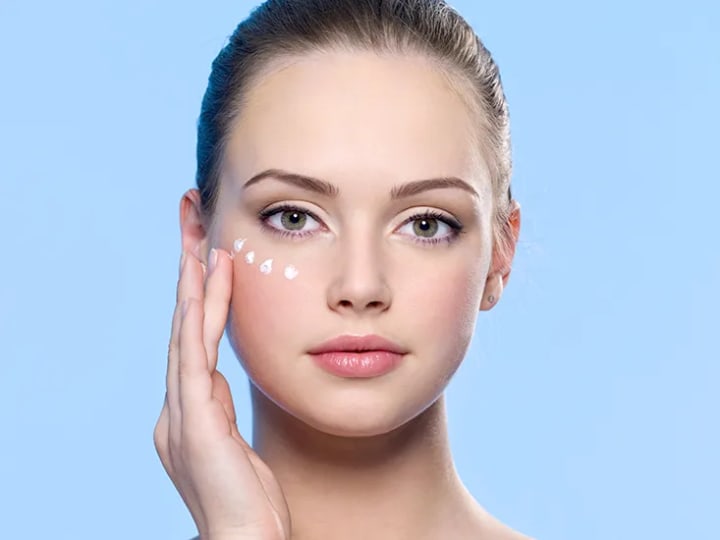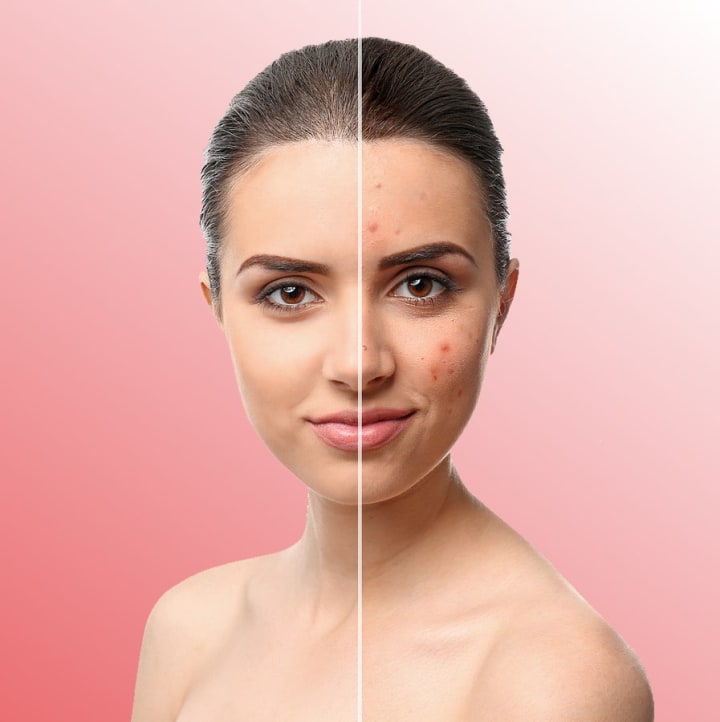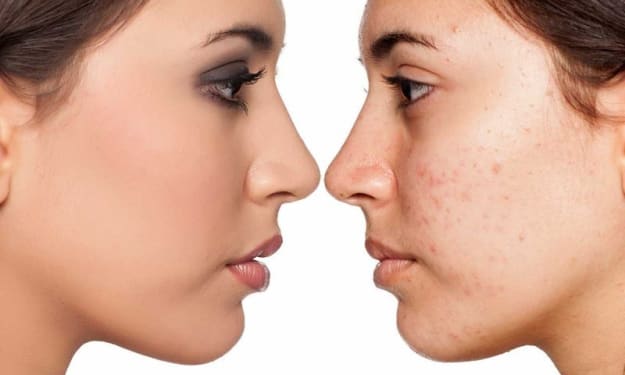Daily Skincare Routine
The Best Daily skincare Routine, According to Dermatologists

Dermatologists' Recommended Daily Skincare Regimen
How to create the ideal at-home skincare routine for your skin type.
Setting up a good skincare regimen is not simple. The TikTok tips and tactics are confusing, the store aisles are overwhelming, and there are many evaluations of skincare products. In addition, each person has a unique skin type, preferred formula, routine, and lifestyle. While there isn't a single optimal approach to take care of your skin, we consulted with leading dermatologists (the experts who truly know) to give you advice on where to begin and what to consider as you create the routine that will work best for your skin.
How do I begin a regular skincare regimen?
No matter what your skin type, you should begin with these three easy steps, advises dermatologist Ashley Magovern, M.D., owner and creator of Manhattan Dermatology in Manhattan Beach, California:
- Cleanse
- Treat
- Moisturize
What does "treating" entail? You undoubtedly already know that cleaning entails washing your face and moisturizing entails nourishing your skin. Targeting problem areas is the aim of every excellent skincare regimen, in addition to maintaining a flawless face. Consequently, depending on your skin type and the outcomes you want to see, treating entails combining serums packed full of healthy skincare elements like vitamin C, retinol, alpha hydroxy acids, and others. It's crucial to include a step in the midway between washing and moisturizing, according to Dr. Magovern. It can have a significant impact on your skin's health, look, and aging over time.
Here are the best daily skincare routines for oily, dry, combination, or acne-prone skin, including the fundamental steps that should be in every at-home regimen (we've also included the best-tested products for each step from the Good Housekeeping Institute Beauty Lab).
Steps in a Morning Skincare Routine
1. Cleanser

In order to avoid clogged pores and dull skin, face cleaning should always be the first step in any skincare regimen. But be gentle: "Many people cleanse too often or use a cleanser that's overly harsh, which will actually break down your skin's protective barrier," Dr. Magovern advises. Try washing your face solely at night and rinsing it off with water in the morning if you have dry or sensitive skin.
Your skin will be gently cleansed by the best solutions without losing any beneficial oils. "A [good] sulfate- and soap-free cleanser for the face will be pH-balanced and gentle to maintain the skin's barrier without stripping," explains Whitney Bowe, M.D., a dermatologist in New York City and the author of The Beauty of Dirty Skin. Here's how to choose the best face cleanser for your skin type while shopping for daily cleansing:
Oily skin: A foamy or gel cleanser will ensure appropriate removal of extra debris and oil from your skin; niacinamide and salicylic acid are two chemicals that can help control and remove extra oil.
Your best option if you have acne-prone skin is a mild foamy cleanser containing acne-busting chemicals like salicylic acid, glycolic acid, benzoyl peroxide, or sulfur.
A lotion, cream, or balm with moisturizing components including ceramides, glycerin, hyaluronic acid, and botanical oils is best for dry skin.
Try a micellar water for sensitive skin; it's an incredibly mild cleanser that contains microscopic particles known as micelles that catch impurities and lift them away without drying your skin.
2. Toner

After cleaning the skin with fingers, a cotton ball, or a towel, toners are applied to dry skin before additional leave-on skincare products including serums and moisturizers. In addition to giving your skin an additional dosage of active substances, a good toner may assist guarantee that it is completely clean and free of dirt.
You don't need a toner, but Dr. Magovern believes applying one may be a terrific way to rehydrate skin, get rid of any leftover dirt, and balance pH. Modern toners are far more sophisticated than the astringent- and alcohol-based formulations of the past, and they are filled with skin-improving advantages that may make you shine. If you're seeking for additional complexion-purifying and brightening effects, these toners can help. Depending on your skin type, the following substances are ones you should search for:
- Look for a toner with hydroxy acids, such as salicylic acid and lactic acid, which promote cell turnover, if your skin is prone to acne.
- Look for a moisturizing toner (or its sibling, an essence) without drying alcohol and with calming components like glycerin and hyaluronic acid for dry or sensitive skin.
- Choose mild exfoliants, hydration enhancers, and antioxidants like vitamin C, vitamin E, and green tea for combination skin since these can fight off free radicals and stop skin damage.
- Look for astringents that constrict pores, such as alcohols or witch hazel, for oily skin.
3. Serum

If you have several facial concerns, you may use many different serum formulations. A serum designed for your skin concerns can both treat and protect, giving concentrated concentrations of potent components that can address a variety of complexion issues, from wrinkles to dark spots. Just be sure to thoroughly read the labels because some serums work better when used in the morning while others work best at night.
Is there a serum that everyone may use in the morning? Using an antioxidant serum can delay the onset of aging symptoms and stop the production of free radicals. As far as antioxidants go, vitamin C is king. No matter what age, everyone should take vitamin C, according to Dr. Magovern. "It helps undo a lot of the skin damage we suffer from pollution and the sun." According to Jennifer David, D.O., a dermatologist in Philadelphia and the creator of Skin & Scripts Virtual Dermatology, hyperpigmentation can be a problem for those with darker skin tones, and using a vitamin C serum in the morning can also help reduce dark patches.
You can use anti-aging serums that include the following components in addition to antioxidant serums to treat wrinkles, fine lines, and more;
Hyaluronic acid serums: They hydrate the skin, preventing dryness and dullness and adding volume.
Niacinamide: a B3 vitamin type that reduces inflammation, promotes collagen formation, and evens out skin tone.
Retinoids: Increase collagen formation and cell turnover to minimize wrinkles and hyperpigmentation. It is recommended to apply retinol at night.
Peptides: They are the collagen's building blocks and can stimulate the synthesis of collagen to reduce wrinkles and improve skin firmness.
4. Eye Cream

Because they are designed particularly for the sensitive eye region, which ages more quickly than the rest of your face, eye creams differ from face creams and also come under the "treat" category. An eye treatment product is unquestionably an excellent choice if you're concerned about fine lines, wrinkles, a lack of firmness, dark circles, or undereye bags.
Marnie Nussbaum, M.D., a dermatologist in New York City and clinical teacher of dermatology at Weill Cornell Medical College, suggests using niacinamide or vitamin C to reduce dark circles, and caffeine-containing products to reduce puffiness. Look for formulations with retinol and peptides for wrinkles and sagging skin. In addition, "hyaluronic acid hydrates dry skin," adds Deanne Mraz Robinson, M.D., a dermatologist in Westport, Connecticut, and an assistant clinical professor of dermatology at Yale School of Medicine. "Vitamin K can help brighten dark undereye circles as well." Purchase a combination of these components that is tailored to your requirements to address various eye region ailments.
To avoid pulling on this sensitive area and inflicting injury, softly tap an eye-area-specific product onto your ring finger while applying in the morning and at night.
5. Moisturizer

Face moisturizers are the next in line since they keep your skin moisturized, supple, and aid to improve its barrier. Choose a lighter moisturizer throughout the day, such as a lotion or gel that will absorb fast and won't pill beneath makeup, if you have oily or acne-prone skin. Try a cream or other heavier composition if your skin is dry. In either case, physicians advise using moisturizers all year round for all skin types since maintaining proper hydration is essential for maintaining young skin. "Look for ingredients like ceramides or hyaluronic acid, since these ingredients are the building blocks of moisture retention in skin," advises Dr. David.
Choosing a moisturizer formula for your skin type may be done as follows:
Dry skin: The key to quenching dryness is a thick cream filled with emollients, humectants, ceramides, and occlusives.
Skin that is oily or prone to breakouts: Look for lightweight lotions or gel-based solutions that are branded "non-comedogenic" or "oil-free."
Look for formulations that are hypoallergenic and devoid of possible irritants, such as scent and alcohol, if you have sensitive skin.
6. Sunscreen

According to dermatologists, using sunscreen is the first step in any skincare regimen for people of all ages and skin types. According to Dr. Magovern, if you don't use sunscreen, you might as well skip all of the other stages. The sun is the main cause of accelerated aging of the skin. No matter what hue your skin is, the harm goes beyond the superficial: "People of color can and do get skin cancer," claims Dr. David. Additionally, addressing hyperpigmentation without using an SPF every day is equivalent to moving backwards by one step.
30 minutes before you go outside, apply a nickel-sized amount of broad-spectrum face sunscreen with an SPF of 30 or higher, covering your neck and the backs of your hands as well. Use a daily moisturizer with SPF rather than applying a moisturizer and SPF separately if you want to reduce the number of steps in your regimen.
The two primary categories of sunscreen formulations are:
- Chemical sunscreens are created with substances like homosalate and avobenzone, which absorb UV rays that come into contact with skin.
- Mineral components like zinc oxide and titanium dioxide in physical sunscreens, often known as mineral sunscreens, bounce UV rays off of the skin.
Chemical and physical components are both included in certain SPF formulations. Dermatologists often advise using mineral and pure zinc-oxide sunscreens if you have sensitive skin, while many chemical sunscreens haven't irritated test subjects' skin, according to GH Beauty Lab. Look for non-comedogenic, oil-free gel formulations if you have oily skin. Avoid spray or gel sunscreens with alcohol if you have dry skin. Although firms have started to offer mineral formulations without a chalky look, people with darker skin tones may prefer chemical sunscreens to avoid the white cast of some physical formulae.
A Nighttime Skincare Routine
Not just because you don't need SPF when you sleep, but also because it's crucial to change up your skincare regimen at night. Since your skin regenerates and heals itself while you sleep, Dr. Magovern believes your bedtime routine is the ideal time to ensure that it is receiving the maximum amount of nutrients and active chemicals. (Therefore, "beauty sleep.") Cleanse, treat, and moisturize are still the three essential stages you must follow, but your nighttime routine will alter slightly.
1. Cleanser

First, wash off the makeup and dirt from the day. If necessary, start by using a separate makeup remover to remove any cosmetics. "Cleansers are not necessarily designed to dissolve makeup, especially on eyes, and haven't done so effectively in our testing," explains senior chemist Sabina Wizemann from the GH Beauty Lab. Work from the inside of the face up, then out and down along the hairline and periphery to just beneath the chin, she advises, using the same cleanser as in the morning.
2. Toner

Apply a toner the same manner you would in the morning if you choose to use one. Toners should be applied before heavier formulations like serums and moisturizers since they are liquid and can better penetrate skin.
3. Serum or Treatment

Alpha hydroxy acids like glycolic acid or retinol, as well as other substances that promote cell turnover as you sleep, are best used at night, according to Dr. Magovern. These decrease pores, have a smooth texture, and brighten skin. (Some serums can be used during the day or at night; according to the label.) Dr. David advises switching between retinoids and the spot-fading compound hydroquinone for treating hyperpigmentation.
4. Eye Cream

Apply a little amount of your facial serum or treatment or an eye cream to the area around your eyes. You don't need to apply much, but if you start conditioning your skin to accept more potent treatments around your eyes, you'll notice more improvement, according to Dr. Magovern.
5. Acne Treatment

Apply an acne treatment now if you have a blemish right now (or a few). Dr. Magovern advocates preventing outbreaks rather than treating them when they appear. "If you just treat the spot, you'll get acne right next to it if your skin is clogged," she warns. "You're breaking out because oil is accumulating, so stick to your routine to keep pores on your entire face clear." (If taking a retinoid, give the skin time to acclimatize before using acne treatments containing salicylic acid.)
6. Night Cream

It's especially important to moisturize at night since it forms a barrier that keeps the skin's natural moisture in and any active chemicals that can stop moisture loss as you sleep. However, utilizing a night-specific solution will have focused anti-aging advantages, mending damage during the day, even though you can use the same non-SPF day moisturizer at night. Night creams feature active compounds that help with improving the skin beyond providing moisture, says Tonya McLeod, M.D., a dermatologist in Charlotte, North Carolina. "Where regular moisturizers focus on improving the natural moisture barrier of the skin only, night creams contain active ingredients that assist with improving the skin beyond adding moisture," she says.






Comments
There are no comments for this story
Be the first to respond and start the conversation.